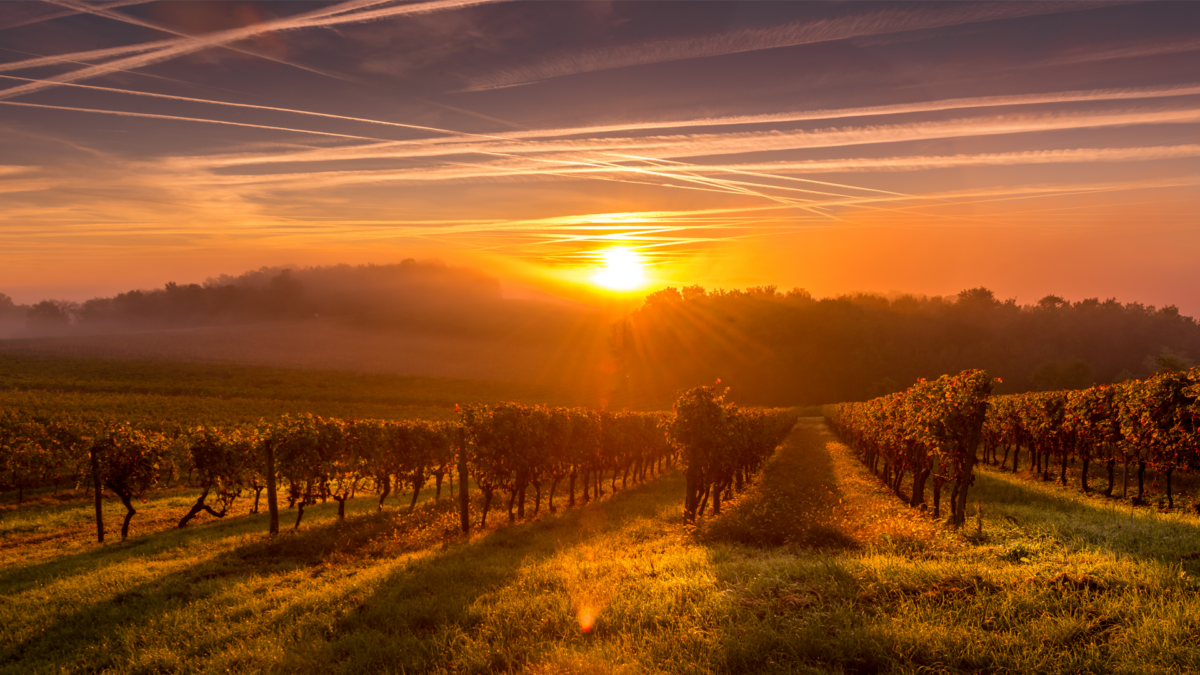
It all started with one ingenious thinker, philosopher Rudolf Steiner. What began as a dream of re-envisioning agriculture has become widely known around the world today – biodynamic wine. But what exactly is it? Join us as we explore this unique form of sustainable winemaking and discover its magical benefits to our planet. We’ll take an in-depth look at why biodynamic wine stands out — from understanding the lunar calendar‘s relation to growing grapes to learning about the holistic approach taken by production methods — along with exploring the timeless ways it captures nature’s essence within each exquisite sip!
Biodynamic wine is a type of organic wine that incorporates biodynamic farming practices into its vineyard management. Biodynamic agricultural practices were developed by Austrian philosopher Rudolf Steiner in the 1920s and incorporate a holistic approach to farming that takes into account the relationship between humans, animals, plants, and the environment. In biodynamic vineyards, all inputs are natural or organically derived, including soil amendments and pest management strategies. These practices focus on creating a balance between nature’s processes and the vineyard ecosystem in order to produce healthy grapes and ultimately great wine. Biodynamic wines are often characterised by vibrant acidity, complexity, and intense aromas and flavours that can be attributed to the holistic farming practices employed. These wines also tend to have a certain sense of “place” or terroir, which can make them unique and highly sought-after.
Biodynamic winemakers often take into account the planets, stars, and other natural elements, and harvest the grapes at full moon according to their astrological calendar.
Biodynamic winemakers have been at the forefront of this movement for many years. In fact, France was the first country to recognise biodynamic vineyards with a certification system.
Biodynamic harvesting by hand and with horsepower, composting, and natural pest control are among the practices used by biodynamic winemakers. These methods are more labour-intensive and costly than traditional farming methods, but the results can be well worth the effort for those who believe in the philosophy behind biodynamic winemaking. As a result, biodynamic wines can be harder to find and may come with a slightly premium price tag. Nevertheless, for those seeking truly unique expressions of terroir and a connection to nature in every glass, biodynamic wine is worth the search!
Discover the French Biodynamic Wine Revolution
The French have been among the most active promoters, or at least practitioners, of biodynamic agriculture since its inception. That’s because the French have their own unique approach to farming, called lutte raisonnée or “reasoned struggle”. This method of agriculture focuses on fostering a balance between nature and human intervention in order to minimise the risk of relying too heavily on synthetic chemicals or external inputs.
The French have been especially active in promoting biodynamic agriculture and producing some of the finest wines in the world with these methods. As a result, the French have been able to produce some of the finest wines in the world using biodynamic practices. Many of these wines have achieved cult-like status and are highly sought after by connoisseurs and collectors alike.
So for those looking to make a positive environmental impact while also enjoying quality wine, biodynamic wines are a perfect choice! Salut!
What is the Biodynamic winemaking lunar calendar?
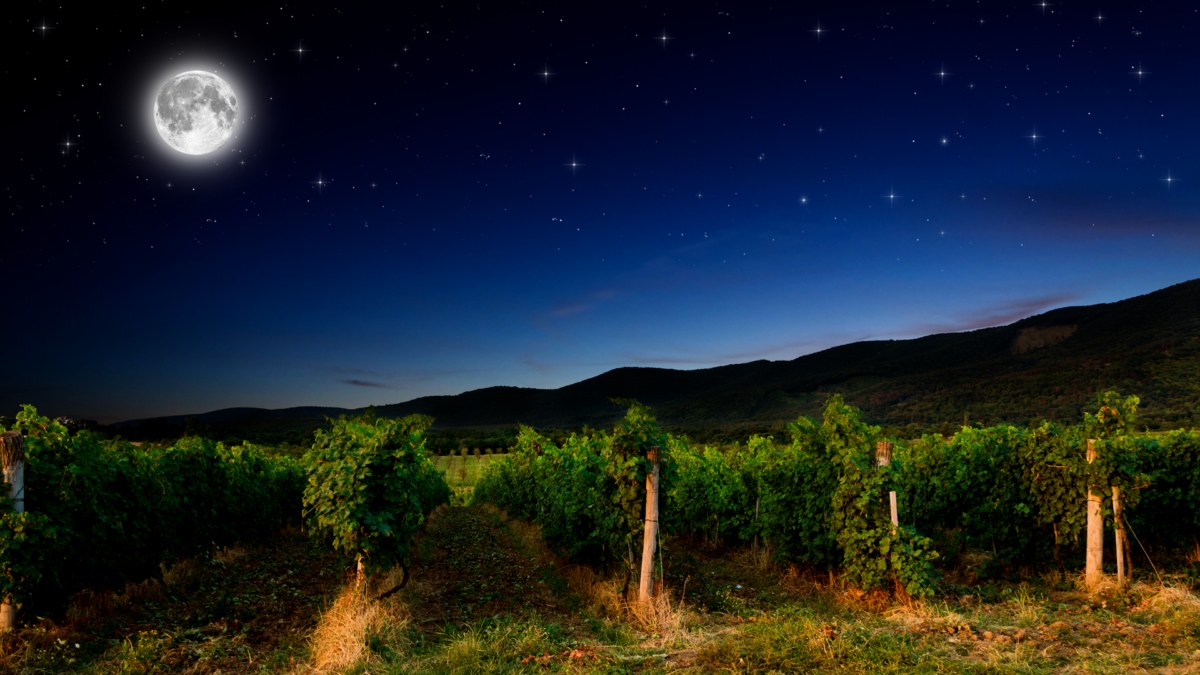
The biodynamic winemaking lunar calendar is a type of astrological calendar used to determine the best times for harvesting, pruning, and other activities related to wine growing. The lunar cycle affects vine growth in many ways, including the ripening of grapes and the availability of beneficial soil microbes. By following this luna calendar, winemakers can ensure that their vineyards are in harmony with the lunar cycle and that they are able to produce healthy grapes and great wine. The calendar is based on a combination of moon phases, sun signs, constellations and planets, and the four elements of Earth, Air, Fire and Water. By taking into account these natural forces, biodynamic winemakers can produce wines that display a unique sense of terroir.
Biodynamic wines, 2 certifications in France, what are they?
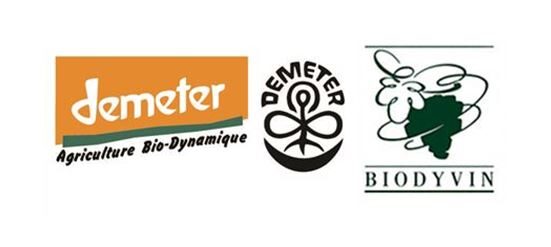
In France, biodynamic vineyards can receive two certifications: Demeter and Biodyvin. The Demeter certification is the oldest and most comprehensive type of certification for biodynamic farming, given that it follows the philosophy outlined by Rudolf Steiner. This certification applies to all types of biodynamic farming and recognises farms for their commitment to sustainability. The Biodyvin certification applies exclusively to biodynamic winemaking, and it requires that a certain number of preparation methods from the biodynamic calendar be employed in order for the wine to receive this label. Both certifications require rigorous standards for ecological practices and provide assurance that the wine comes from a certified biodynamic vineyard.
Demeter and Biodyvin rule during the vinification and ageing.
In order to receive either the Demeter orBiodyvin certification, biodynamic winemakers must adhere to a number of rules during the vinification and ageing process. These include using only organic inputs, abstaining from filtering and fining the wine, avoiding mechanical processes that can alter the natural character of the wine’s terroir, and avoiding the use of sulfites. Additionally, some other methods employed during this process include the use of natural yeasts for fermentation, ageing in barrels made from organic wood, and the use of clay amphorae. All of these rules ensure that biodynamic wines remain true to their origins and maintain a connection to nature at every step.
What are the key preparations required for Biodynamic wine to be Certified?
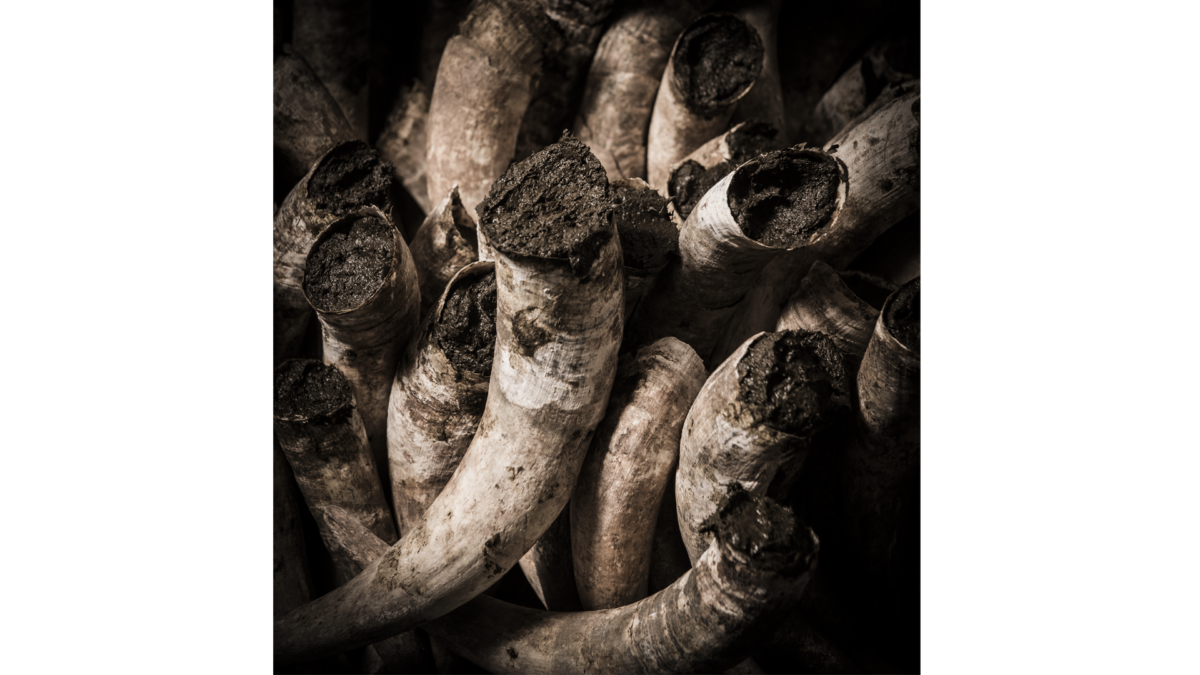
In order for a biodynamic farm or winery to be certified biodynamic, it is necessary to use two key preparations: the Preparation 500 (also known as horn manure) and the Preparation 501 (also known as horn silica). The Preparation 500 is made from cow manure that has been placed in the horns of cattle and buried for several months until it breaks down into a fine powder. This preparation is used to help promote soil fertility, aeration, and water retention in the vineyard.
The Preparation 501 is made from quartz that has been ground down into a fine powder and combined with other natural materials such as herbs and minerals. This preparation helps promote healthy vine growth and increases photosynthesis in the vines. Both of these preparations must be used together for a farm or winery to receive biodynamic certification.
The process after 500 and 501 is 508 the Dynamisation phase
After Preparation 500 and 501 are applied to a biodynamic farm or winery, the Dynamisation phase (also known as Preparation 508) is used. This process involves vigorously stirring a mixture of the two preparations in water with a wooden paddle for 20 minutes. This is then watered onto the vineyard soil to add vital energy to the vines and promote healthy growth. This is an important step in biodynamic viticulture as it helps bring the different elements of nature together in harmony, allowing for a better overall balance between human intervention and natural forces at work. Following this process, a biodynamic farm or winery can then be certified biodynamic, ensuring that these practices are being adhered to in order to maintain the highest standards of quality and sustainability. So while biodynamic winemaking is labour-intensive, it can be well worth the effort for those seeking a truly unique expression of terroir and connection to nature in every glass!
In conclusion, biodynamic winemaking is an alternative form of viticulture that has been gaining traction in recent years due to its holistic approach to managing vineyards and producing wines
Is Biodynamic winemaking, and Farming, sustainable and eco-friendly?
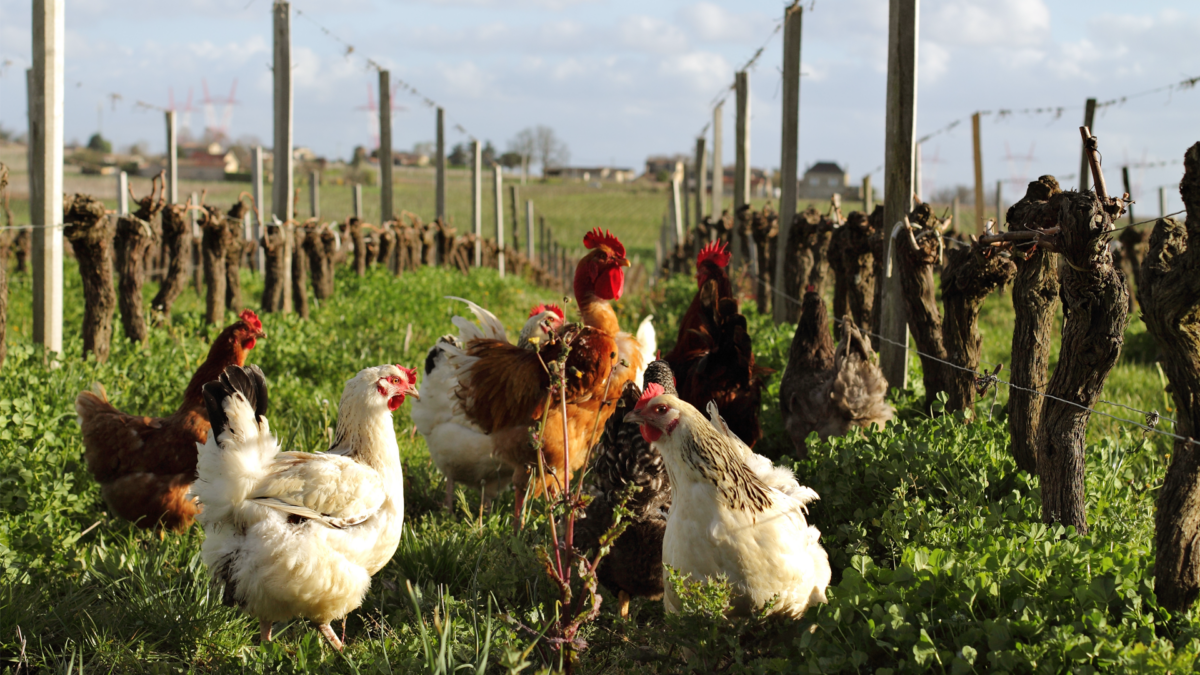
Biodynamic winemaking and farming are considered eco-friendly practices. The holistic approach to managing vineyards means that all inputs into the environment are taken into account, including soil amendments and pest management strategies. This helps promote a healthy balance between nature’s processes and human intervention, which can lead to a healthier ecosystem overall. Furthermore, biodynamic winemakers often rely on traditional methods of harvesting such as hand-picking and horsepower to reduce their environmental impact. Finally, biodynamic wineries typically focus on reducing waste by composting and recycling materials whenever possible. All of these practices contribute to making biodynamic winemaking and farming a sustainable approach to viticulture. So while they may be more costly and labour-intensive than traditional farming methods, the rewards can be well worth the effort for those dedicated to living in harmony with nature!
Certified Biodynamic winemaking rules for crop spraying
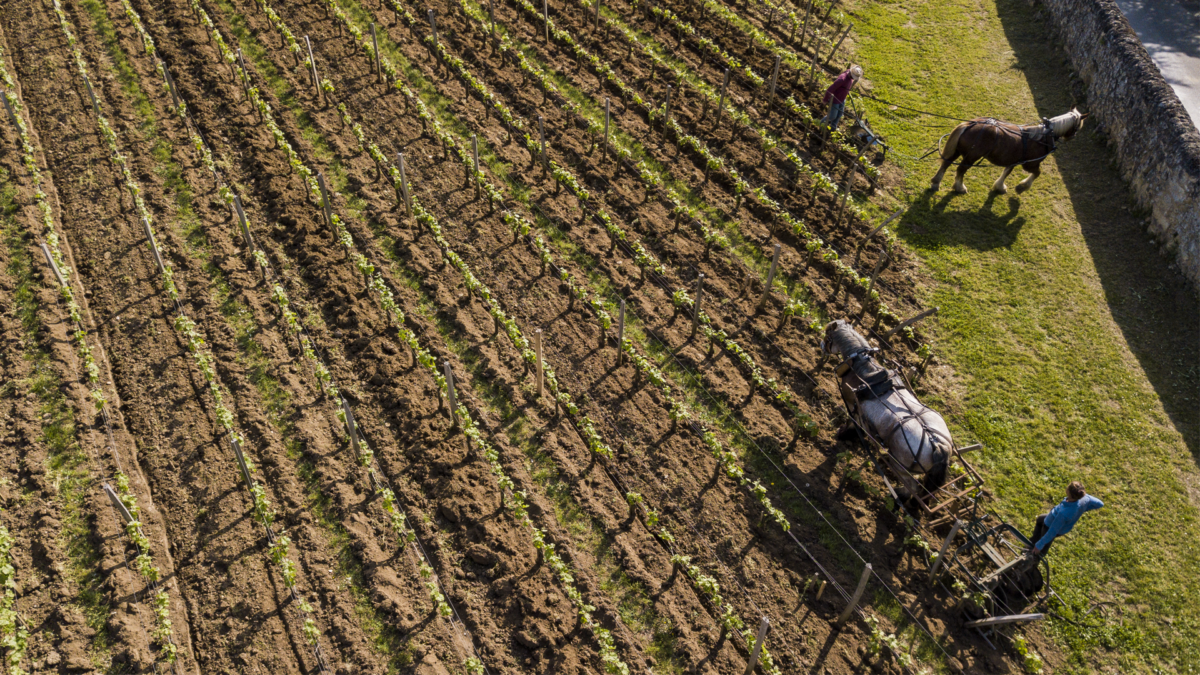
The use of copper and sulphur in biodynamic farming is seen as a form of preventative pest control. While these substances can be toxic if used incorrectly, they are necessary when used in very small amounts to protect crops from harmful insects and fungi. In addition, biodynamic farmers are careful to not over-spray crops with these substances in order to preserve the balance of nature and ensure that the environment remains healthy. Furthermore, biodynamic producers often use other natural methods such as companion planting or hand-picking pests in order to reduce their reliance on copper and sulphur sprays. Therefore, while copper and sulphur can be used as a form of pest control in biodynamic farming, its use must be carefully monitored to ensure that the environment is not harmed.
By adhering to these principles, biodynamic winemaking and farming can help create a more balanced and sustainable ecosystem that benefits both nature and humans alike. With its commitment to quality, sustainability, and connection with nature, biodynamic winemaking is becoming an increasingly popular choice for those seeking to create a unique and special expression of terroir in every glass.
Finally, it is important to note that biodynamic viticulture does not come without its challenges. The labour-intensive practices can be costly and require a significant investment of time and resources to produce wines of the highest quality. Furthermore, biodynamic wineries often need to be certified by an international organisation in order to ensure that their practices meet certain standards of sustainability. However, despite these challenges, biodynamic farming can provide a unique and rewarding experience for those dedicated to living in harmony with nature and producing high-quality wines that express the true character of the land, creating an unforgettable and special experience for wine drinkers everywhere. With its commitment to quality and sustainability, biodynamic winemaking is definitely a practice worth exploring!
Is Biodynamic wine sustainable and good for the planet?
The amount of copper allowed in biodynamic winemaking is determined by Demeter International, the leading certifying body for biodynamic agriculture. According to their standards, the maximum allowable copper content in a biodynamic wine should not exceed 0.1 mg per litre. Furthermore, they also require that all agricultural inputs are completely balanced with each other and with the environment. In addition, biodynamic producers must also document their copper usage in order to ensure that they are following the standards set by Demeter International. Therefore, while copper can be used as a form of pest control in biodynamic winemaking, it is strictly limited in order to protect the environment and promote sustainability.
Biodynamic winemaking is a unique approach to viticulture that takes into account the balance between nature and human intervention. By relying on traditional methods of harvesting, using natural pest control measures such as companion planting, and composting organic materials whenever possible, biodynamic farmers are able to produce high-quality wines that express the true character of the land. In this way, biodynamic winemaking provides a sustainable and rewarding experience for those looking to create a unique expression of terroir in every glass. Despite its labour-intensive practices and need for certification, biodynamic viticulture is becoming an increasingly popular choice for those seeking to produce quality wines that reflect a special connection with the land.
Biodynamic farming goes the extra mile to restore our planet’s biodiversity, studies have revealed that within organic and biodynamic farmland an increase of 35% more birds and 23% more insects are found, this is down to the creation of natural habitats and the absence of chemical and synthetic pesticides.
Biodynamic wine is a sustainable and eco-friendly form of winemaking that has many benefits for the planet. By taking into account all inputs into the environment and relying on natural methods such as hand-harvesting and composting, biodynamic winemakers are able to reduce their environmental impact. Additionally, biodynamic wines often have a unique sense of terroir, or place, that can be attributed to the holistic farming practices employed.
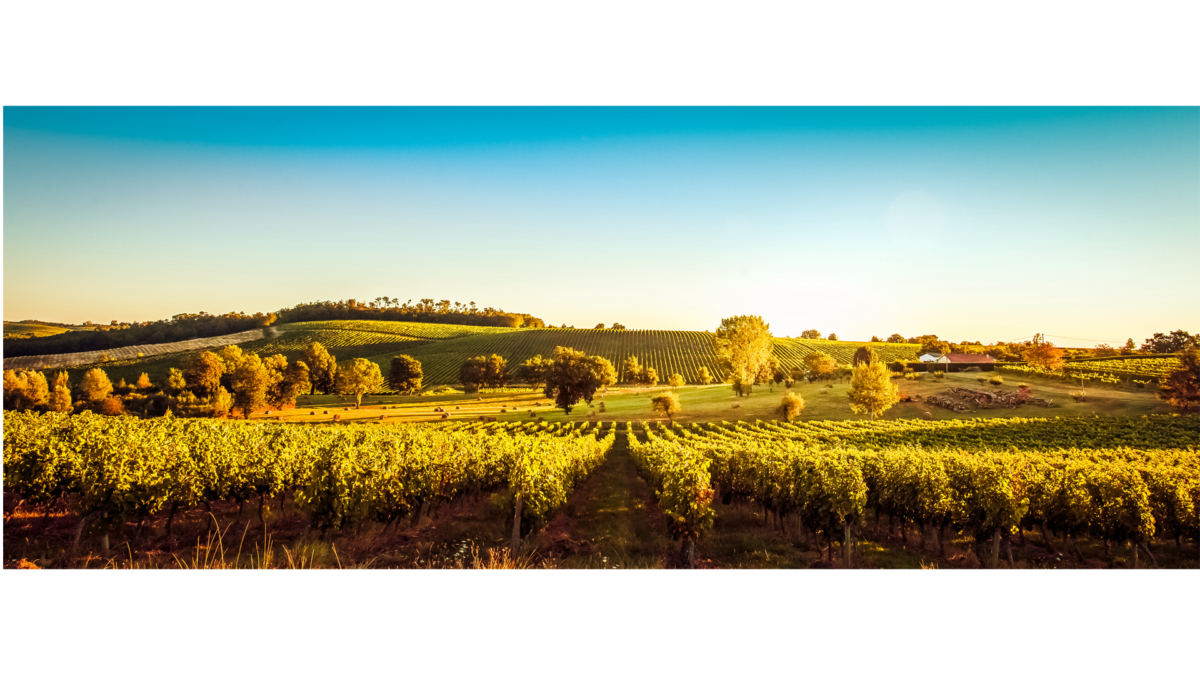
This makes biodynamic wines truly special and highly sought-after by wine lovers looking for something different. For those dedicated to living in harmony with nature, biodynamic winemaking is an excellent choice for both quality and sustainability.